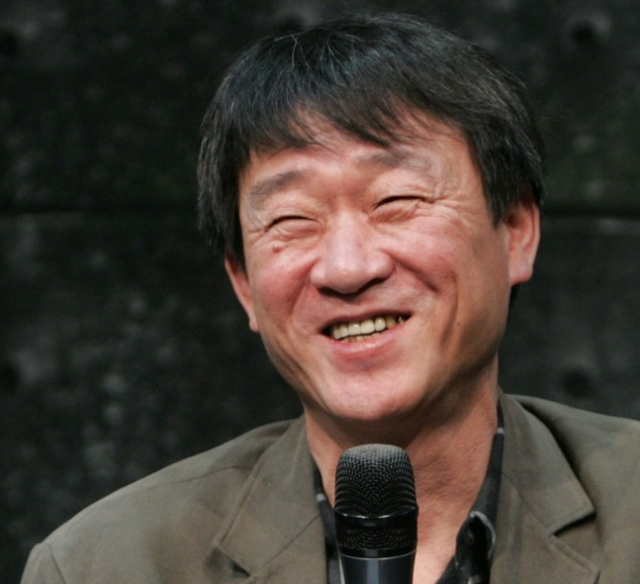 |
Kim Min-ki. (Woodang Education and Culture Foundation) |
Kim Min-ki, a singer-songwriter best known for the once-banned 1971 hit “Morning Dew,” was posthumously given the Woodang Award for promoting national unity and the arts.
“His music laid the groundwork that brought the country together. Kim was a humble creator, musician and director, and while leading a theater company, he helped foster singers and actors,” said Lee Jong-chan, president of the Woodang Education and Culture Foundation, at a ceremony Wednesday in Seoul.
The foundation, set up to remember independence activist Lee Hoe-yeong (1867-1932), also known as Woodang, distributes three awards annually: the Woodang Award, the Yeongseok Award and the Woodang Academic Award.
The Yeonseok Award, recognizing companies that have contributed to society, went to materials firm Dongjin Semichem. The Kosdaq-listed producer of fine chemicals for semiconductors and liquid crystal displays, “embodies victory against Japan” as it successfully perfected technologies reducing South Korea’s reliance on Japanese parts makers, according to the foundation.
Historian Park Hwan was given the Woodang Academic Award for shedding new light on the history involving Korean independence fighters against Japanese colonial rule. The scholar’s work spans from Manchuria to Russia’s Far East and Central Asia, the foundation said. Park, an emeritus professor at Suwon University in Hwaseong, Gyeonggi Province, currently heads the Korea Academic Cultural Foundation.
Launched in 1984 as a scholarship fund for low-income students, the Woodang Education and Culture Foundation, began recognizing exceptional individuals and companies that embody the spirit of the late independence activist Lee in 2019.







![[Herald Interview] How Gopizza got big in India](http://res.heraldm.com/phpwas/restmb_idxmake.php?idx=644&simg=/content/image/2024/11/20/20241120050057_0.jpg)